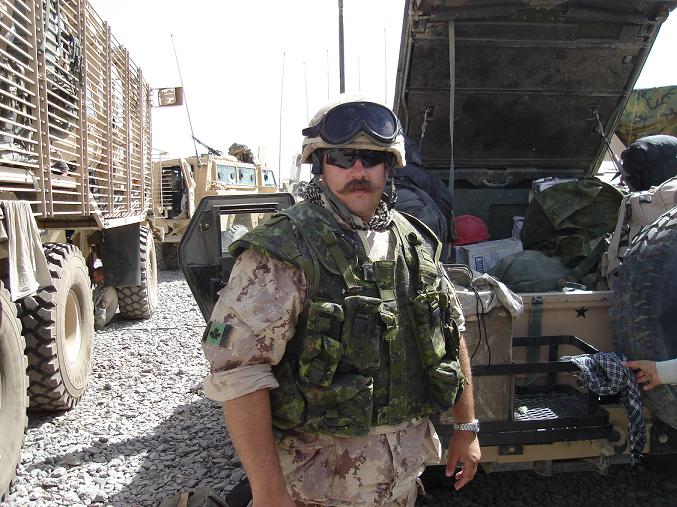Getting to know LCC’s Dean of Military Chaplains
An Interview with DMC, Rev. Rod Buck
What is your role and where do you serve?
My name is Rev. Rod Buck and I am currently serving the parish and school of St. Matthew Lutheran Church in Stony Plain, Alberta. I have also been called to serve as the Dean of Military Chaplains (DMC) for Lutheran Church–Canada (LCC). The DMC is the spiritual leader of LCC’s military chaplains serving in the Canadian Armed Forces.
As the DMC, what are your responsibilities?
My areas of responsibility include:
• Ecclesiastical oversight;
• Building community;
• Caring for military chaplains and nurturing brotherly support;
• And discussing and encouraging unity of doctrine, practice, mission, and ministry amongst LCC military chaplains.
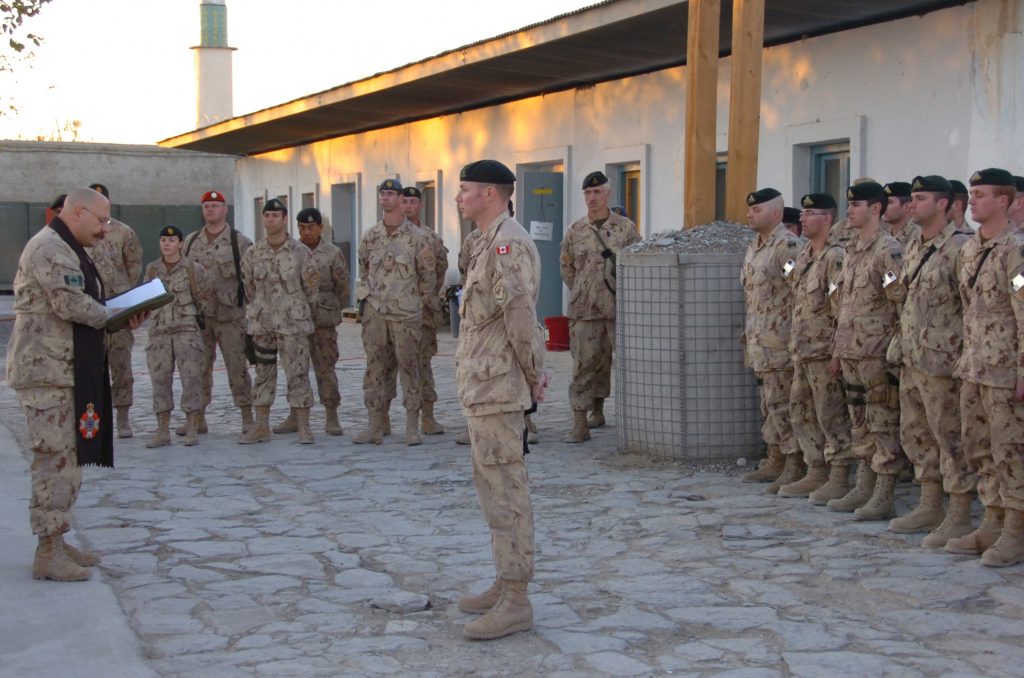
Quiet Memorial service held for Canadians killed when troops “outside the wire” couldn’t get back to Kandahar Airfield for the ramp ceremony.
How would you describe what both a military chaplain and a DMC do?
As a former military chaplain (13 years), I served the troops and their families often in what we like to refer to as a “ministry of presence.” That is, being with the troops in all activities, both foreign and domestic operations. Now, as the DMC, I serve as pastor to those chaplains currently serving, seeking to care for that diverse and geographically spread-out group. I represent LCC to them and bring their needs and concerns to the President’s Ministry Council.
What are the parallels between chaplaincy and parish ministry? What are the differences?
There are a number of similarities in that the chaplain (or “Padre” as the troops call them) are ordained pastors who have been called by the church to serve in the ministry of Word and Sacrament but within a specific context. It is this particular context where the roles differ. The military is a unique community with rules and mores (both written and unwritten) that make ministry within it far different from a civilian parish. In many ways the Canadian military is a foreign country with its own dress, customs, culture and language. Much like a missionary to a foreign land, the military chaplain has a steep learning curve to assimilate himself into the culture so that he might most effectively serve as a pastor to those under his care.
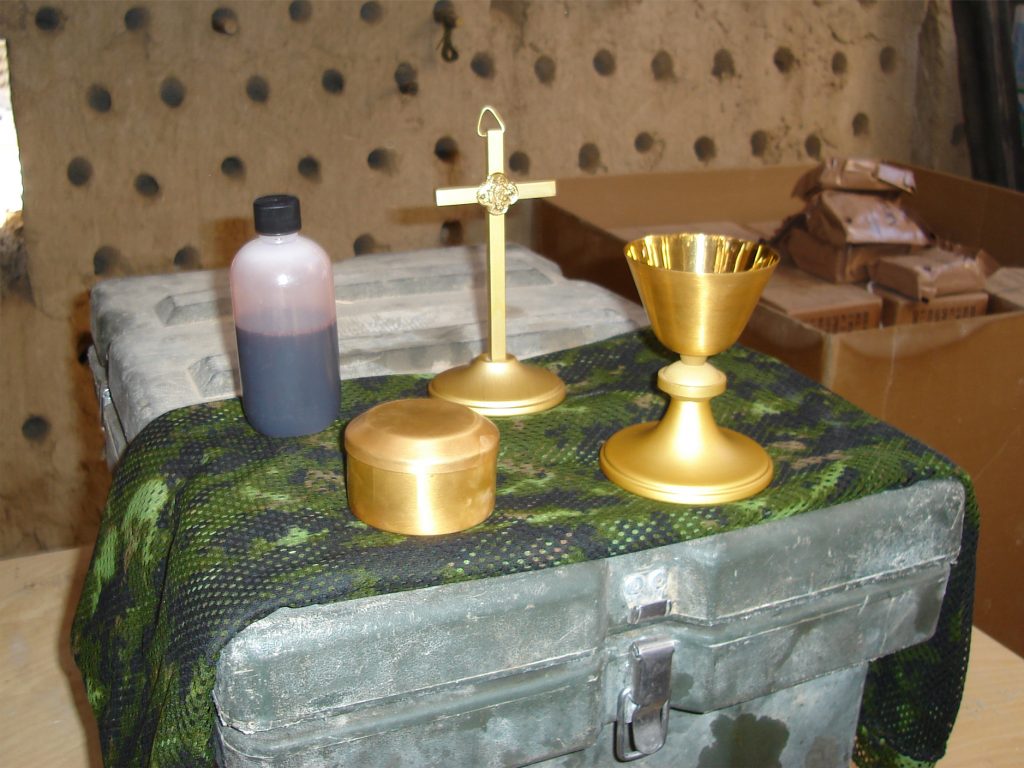
Communion at a Strongpoint.
What additional training do chaplains undergo in order to serve military personnel in unstable and challenging environments?
After an extensive application process, an LCC chaplain undergoes basic training, usually held at the Chaplain School at Canadian Forces Base (CFB) in Borden, Ontario. As a commissioned officer in the Canadian Armed Forces, they may be required, depending on their tasking or deployment, to continue with a variety of training courses throughout their career. These courses may include chaplain-specific courses covering topics like counselling or ethics, or courses in preparation for Senior leadership. They may also include courses required for Canadian Armed Forces (CAF) officers in French Language; Advanced degrees; or they may include mission-specific pre-deployment training in Combat First Aid, Communications, and the like. As a Subject Matter Expert (SME), chaplains may also be called upon to serve as instructors to help prepare troops to deal with the difficult issues that arise within specific overseas deployments.
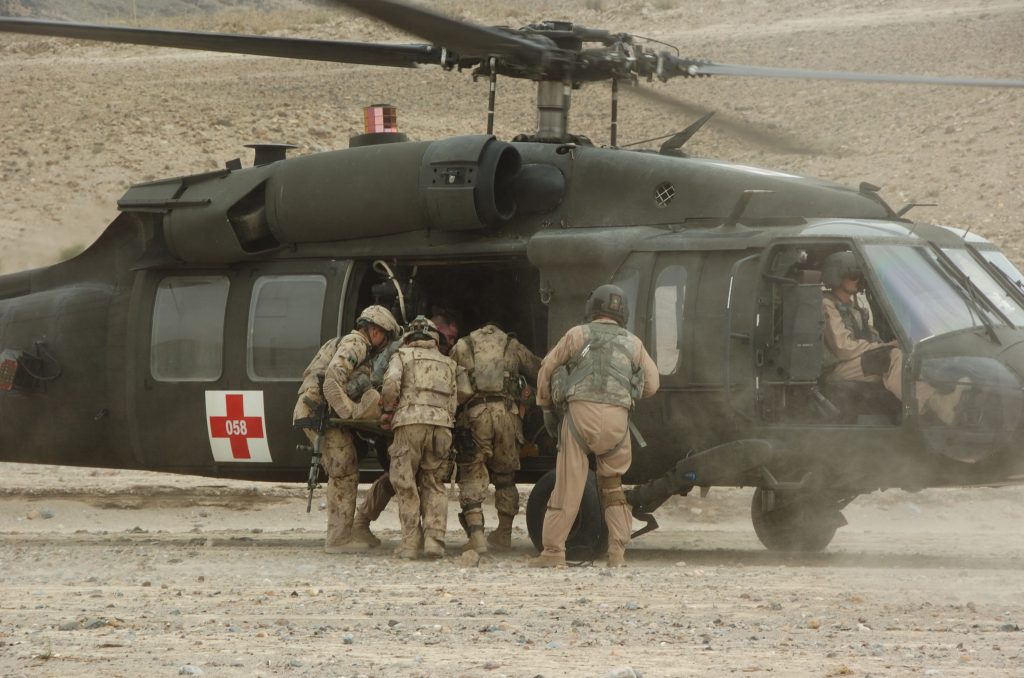
Dustoff—An emergency casualty evacuation of one of our soldiers who was wounded on patrol. Photo by Sergeant Carole Morissette.
What does it mean that military chaplains are “non-combatants”?
As a non-combatant, chaplains do not carry weapons. That means that even within hostile environments such as Bosnia or Afghanistan, chaplains move and work among troops unarmed. While this may seem unsafe for the individual, chaplains have chosen not to carry weapons so that they might be of greater service to those that are required to carry weapons. At times, soldiers are called upon to use deadly force in the course of their duties. There is often, understandably, a great deal of trauma and guilt associated with this event. In discussing the guilt and trauma of the event, a chaplain is able to offer counselling and, if necessary, absolution to that soldier as coming from one who is NOT a fellow combatant. In this way this comfort and assurance is received not as mere rationalizing or self-justification, but rather as true compassion/absolution spoken by one who has not participated in the violence.
In your opinion, what is the most valuable thing a military chaplain can provide to a man or woman serving in the military?
The most important thing a Military Chaplain can provide to a man or woman serving in the military, apart from the Means of Grace, is “ministry of presence.” In THIS case what I am referring to as presence is in an incarnational sense, that is, that you are present among them as one who brings Christ into their midst. Soldiers often find themselves in some of the most hostile and difficult environments imaginable—places where life is held cheaply—places where they are actively “hunted.” They see violent death up close and are called to use deadly violence in the protection of others. This can shake an individual to the core and cause them to question everything they believed, including whether they are worthy of love and forgiveness. The Padre, by his presence and words, reminds them of God’s ever-present love and mercy even (and especially) in horrible circumstances.
To quote British Field Marshal Bernard Montgomery: “The most important people in the army are the nursing sisters and the Padres—the sisters because they tell the men that they matter to us—and the Padres, because they tell the men that they matter to God. And it is the men who matter.”
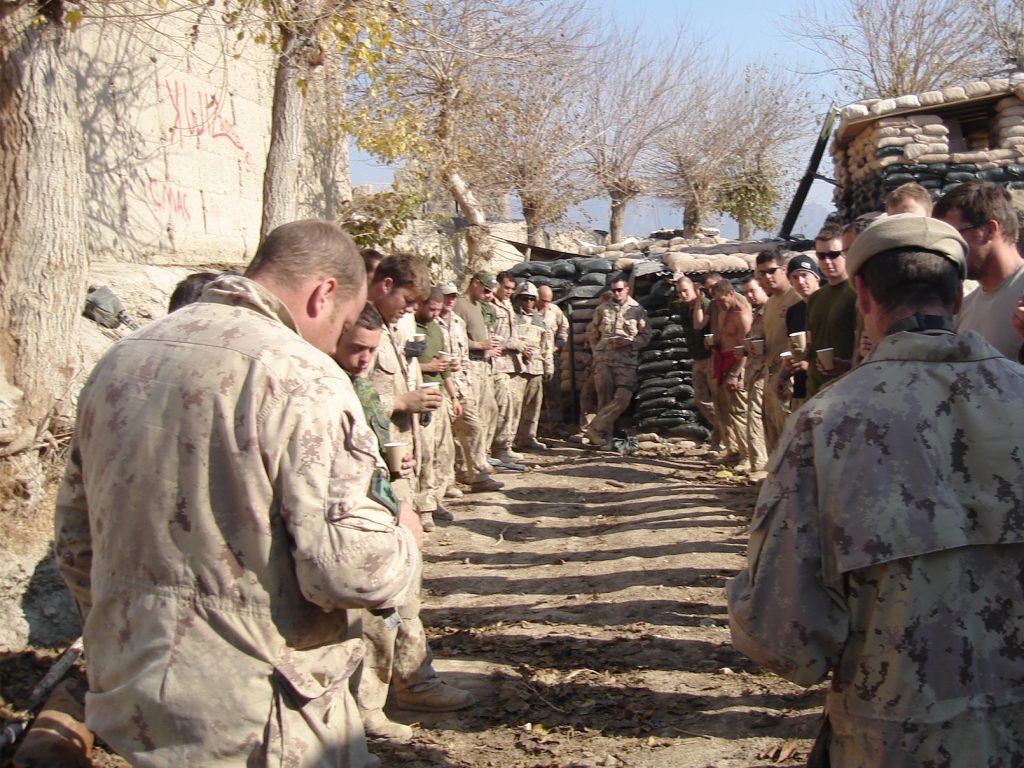
Short service with the RCR (Royal Canadian Regiment) just after Christmas Day at one of our Strongpoints deep in the Panjewaii Valley.
What is unique about LCC military chaplains (confessional Lutheran military chaplains)?
Perhaps the most unique aspect of LCC Military Chaplains is our ability to understand our troops as sinful human beings who are loved by God and redeemed by Jesus Christ. Our understanding of the need to properly distinguish Law and Gospel places us all in the same situation/condition—“miserable sinners in dire need of forgiveness.” We know sin in its worst forms, and we know the pure grace of God in Jesus Christ. This means that for LCC Chaplains, no sin surprises us, and no sinner is beyond loving or saving under the grace and mercy of Jesus. This comes as a surprise to many soldiers who have bought into the secular myth that “religious people” see themselves as better or superior to “mere sinners.” It also allows us to have a realistic and relevant worldview regarding the sin and brokenness of mankind that has caused the war-torn situations in which our troops find themselves.
What is something that is often misunderstood about chaplaincy, or something that the average parishioner might not be aware of?
While our chaplains like all pastors bring the light of Christ into dark places, the context of this work is different within the military. Soldiers are placed in the very worst of situations, far from home and the support networks they depend upon. Padres (military chaplains) are a vital avenue of support and encouragement to soldiers as they bring Christ to them. However, this means that chaplains will at times bear the very heavy burdens of the troops under their care. The cost of ministry to these men and women means that the chaplain will not be left unscathed by his experiences. Many of our troops suffer from PTSD, or Critical Incident Stress or simply emotional burnout after a deployment or after years of service. As they share the risk of our troops, chaplains also share the effects.
Share an experience that conveys the importance of chaplaincy work for you.
There are so many experiences that stick out for me. I can honestly say that there is not a single waking hour that I do not think of the situations and especially the men and the women I served with for 13 years. Serving in the military has been an experience that has shaped so much of who I currently am. The training has shaped me, and the experiences have changed me. The bad times (in Afghanistan) were the absolute incomparably worst times that I could have imagined. They were times that defy description to any save those who were there. But those times were mitigated by being surrounded by the absolute best people I could have ever wanted to be with. When we wept, we wept together and supported each other; when we laughed, we laughed until we could barely breathe. The men and women in our armed forces are quite simply the best of us—they are the world’s last true idealists who will quite literally, often and willingly, place their lives on the line for others. They can be a closed group of rough people who do not let outsiders into their community quickly or easily, it must be earned. But when you have been included among them and have been given their trust and friendship, it is a gift to be cherished. There is not a day that goes by that I do not think of them and thank God that they were part of my life.
How can LCC parishioners support our military chaplains?
If your pastor happens to be a Reserve Military Chaplain, encourage him in that task. Talk to him about it to determine how you might be able to support him. If you have a military chaplain and their family posted to a nearby Base and who is attending your parish, make them feel welcome and help them to be involved. Take time to care for their family who, in the event of a deployment, will be undergoing all kinds of stress. But above all, keep them and the ministry to which they’ve been called in your prayers.
A Printable PDF version of this interview is available for download by clicking the button below:
Printable PDF – Interview with LCC’s DMC
———————
Learn More
Learn more about Lutheran Church–Canada (LCC)’s Military Chaplains Here.





